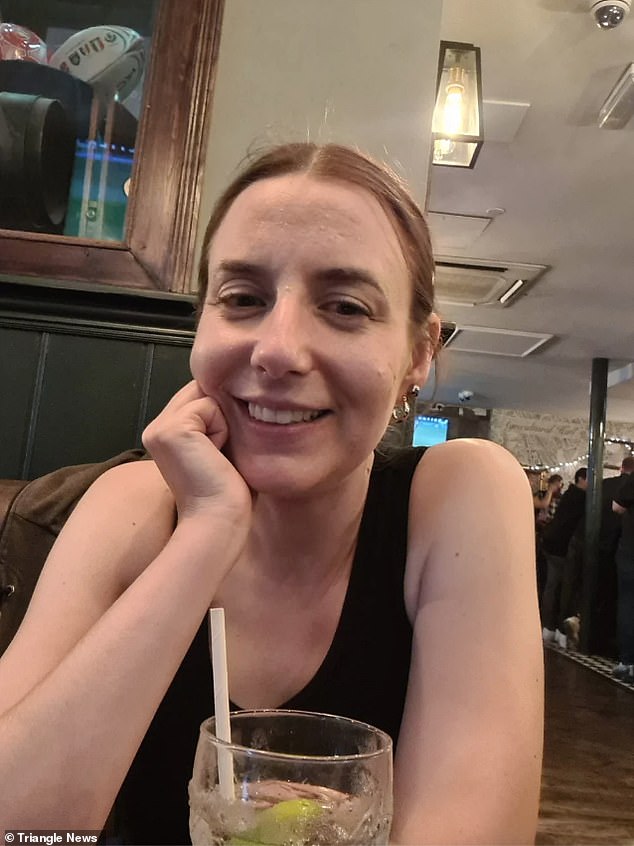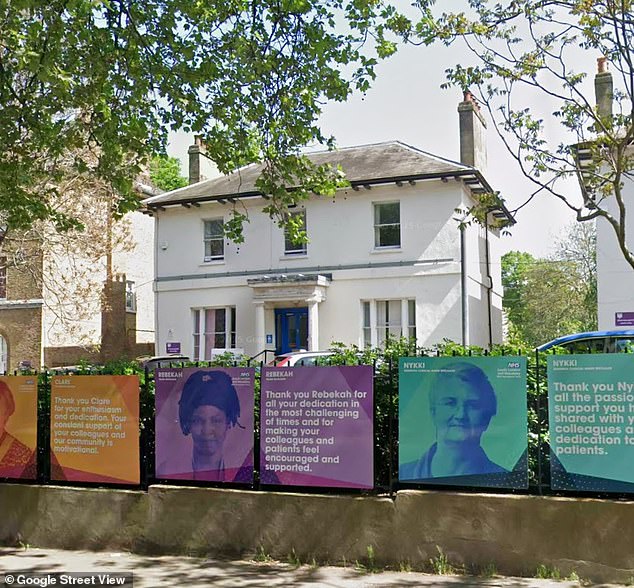A mother-of-one took her own life after being discharged from specialist mental health services despite still struggling with postpartum psychosis, an inquest has heard.
Roisin Harron, from south London, had been suffering from the debilitating illness following the birth of her son in 2017.
The 41-year-old, who had a history of depression, started treatment at Bethlem Royal Hospital, Bromley in 2018 following a week of hypermania—periods of abnormally elevated mood and energy levels.
As part of her treatment Ms Harron underwent several rounds of electroconvulsive therapy (ECT)—which involves sending an electric current through a patient’s brain.
Under NHS guidelines, ECT should only be used as a short-term treatment if a patients, with repeated ECT only recommended if a patient has previously responded well to the treatment.
But, an inquest in her death, found it was ‘impossible to underestimate the impact psychiatric medication had in Roisin’s life’.
It also heard that Ms Harron felt ‘her brain was in some was irreversibly damaged’, following the treatment.
Her parents, Margaret McMahon and Henry Harron told the South London Coroner’s Court in Croydon: ‘Roisin had been so unwell and such a risk to herself. But there had been much progress over the years.

Roisin took her own life after being diagnosed with postpartum psychosis and bipolar disorder after the birth of her son in 2017. She also suffered from depression in her teenage years
‘She tried to help herself and seemed to want to do her best at the things that mattered to her—being a good mother, being good at her job and working hard on her relationships with family and friends.
‘Prior to he illness, Roisin had an incredibly good memory but during her hospitalisation her memory became quite impaired.’
Ms Harron was then diagnosed with bipolar disorder—a mental health condition characterised by extreme mood changes from manic highs to depressive lows.
She was prescribed a number of different medications to try and manage her symptoms, including antipsychotics and lithium—a long-term treatment typically prescribed for at least six months.
But, the trial and error nature of finding an effective treatment whilst managing Ms Harron’s symptoms proved incredibly difficult, causing her stress and anxiety, the inquest heard.
In April 2023, Ms Harron was discharged from the specialist mental health services at South London and Maudsley NHS Foundation Trust and put back into the care of her GP at Paxton Green Group Practice, London.
But her family told the inquest they were skeptical and did not feel that their daughter was well enough to be discharged and navigate her illness without the support of mental health professionals.
They said: ‘It was clear that beneath the smiling and friendly face that Roisin presented to the world, there were very difficult struggles going on.

Roisin was being treated at South London and Maudsley NHS Foundation Trust before she was discharged back and out back into the care of her GP despite still struggling with her mental health
‘There was still a deep and enduring depression and so many anxieties.’
They added: ‘She put on a brave face, but she clearly missed having regular contacts that she had built up a good relationship with.’
Having been discharged from the services, Ms Harron had to use local pharmacies to access her medication—many of which had issues with supply and distribution.
Her family told the inquest that this caused her a lot of anxiety and played a role in the tragic spiral that lead to her death.
In response, Dr Aneesa Peer, a consultant psychiatrist based at the South London and Maudsley trust said when Ms Harron was discharged she was in remission.
‘When patients are dealing well and are stable for at least a year and they are on a good treatment regime they are considered for discharge,’ she said.
Following this period, they can return back to the specialist services under a scheme that ensures they will be seen within four weeks, rather than being added to longer waiting lists.
‘She didn’t refer herself back after being discharged,’ Dr Peer told the inquest.
‘Roisin was very astute around her medication and would advocate for herself very clearly and concisely.
‘This is not someone who is waiting on support,’ Dr Peer told the court.
‘Patients come back to us all the time. The door is open. I am not sure how we could have intervened.’
Mr Harron, a retired social worker, also told the could he felt this attitude towards his daughter’s treatment was ‘too blase’ and it was ‘impossible to underestimate the impact’ it had in his daughters life.
Ms Harron was found dead at the London Crystal Palace Travelodge on June 17, 2024, just over a year after being discharged from specialist services.
A postmortem examination revealed that she had overdosed and a number of prescription drugs were found in her system.
Dr Mihir Khan, who carried out the examination, concluded she died of cardiac arrest triggered by an overdose.
Assistant coroner Victoria Webb confirmed death by suicide, adding that Ms Haron had suffered with postpartum psychosis.
Postpartum Psychosis affects roughly one in 1,000 women every year.
It is different from the ‘baby blues’, which many mothers experience while they struggle to cope with the stress and hormonal changes that come with having children.
It is also different from postnatal depression, which affects one in 10 women to some extent.
This can cause feelings of helplessness, as well as a loss of interest in the baby and crying frequently.
Postpartum Psychosis symptoms usually start within the first two weeks.
Common signs include manic moods, feeling paranoid or afraid, acting out of character, confusion and restlessness.
Little is known about exactly how or what triggers the illness and so far little evidence to suggest it can be linked to a traumatic birth.
Antidepressants may be prescribed to ease symptoms, as well as anti-psychotics and mood stabilisers, like lithium, according to the NHS.
Psychological therapy, like cognitive behavioural therapy (CBT), may help patients manage how they think and act.
In rare cases, electroconvulsive therapy can help with severe depression or mania.
Most women with PP make a full recovery if treated correctly.
If you, or someone close to you, is experiencing postpartum psychosis, talk to a midwife, GP, health visitor or dial 111 – if there is an immediate threat to life, call 999. You can also call the Samaritans on 116123.
For support and advice, visit Action On Postpartum Psychosis’ website – app-network.org.












